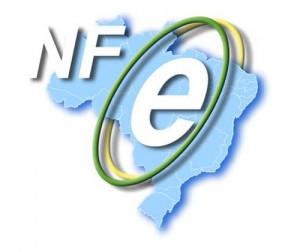Technology has benefited the regularization of businesses and companies, especially when it comes to the Tax Authorities. 5 or 6 years ago, tax evasion was common and, obviously, the government lost a lot of money with this. The solution found was to use technology in favor of regulation.
Soon, according to SPED (Public System of Digital Deed), no company will be able to accept a note other than the NFe itself. Change is inevitable and must be seen as an opportunity for a new adequacy of financial management. Therefore, we separate below some important points of the NFe that you may not know yet.
1. The cost of paper and the need for physical space
The electronic invoice eliminates the cost of paper that must be produced in specialized printers and the need for an adequate physical space for the storage of banknotes. In addition, it eliminates the cost of printing these notes, since the cost of computerization is much lower. This logistics (including reducing downtime at tax points) is avoided because access is done quickly, accurately and safely.
The sending of Danfe (Auxiliary Document of the Electronic Invoice) that accompanies the merchandise, in case of sale of merchandise, facilitates the entire process of consultation of the electronic invoice.
In the case of services, the note can be automatically sent via e-mail, since the registration of your company in the city hall already sends an alert in your e-mail whenever any company issues a note in your name.
2. Improved financial management
Until then, the bureaucracy so required in the financial area is simplified and, to work perfectly, it must rely only on the engagement of those involved in the process so that all steps are done safely.
This generates great comfort in addition to optimizing all data storage and management processes, which makes it incredibly easy to exchange information.
In addition, you can easily control your bookkeeping, based on the invoices sent and received, saving the Danfes by email and sending your copy directly to the accounting.
3. Citizenship
The NFe brings with it the opportunity for greater inspection in the tax area, the State and citizens benefit from it.
The greatest example of this is the case of specifying the CPF on the invoice in São Paulo involving the then ICMS. The note also provides more detailed planning and greater engagement by companies and accountants.
This facilitates inspection, since the control of merchandise and provision of services are tied to the notes issued by suppliers and, their crossing with the information from the Super Receita, cross the veracity of the declared value with the received value.
4. Eliminate possible errors
NFe avoids typing errors and has transparency that is extremely important for common errors in paper invoices (mainly in the bookkeeping area).
Access to these documents is done in an agile and fast way, since only a computer with internet access and a digital certificate is needed, which can be purchased at Post Offices at an affordable price, and much less at the cost of printing banknotes, after all.
The Finance Secretary extracts all the necessary information, bringing efficiency to the process, since the notes are stored in the system itself.
Source: Portal Contábil SC
Click here and read the full article






